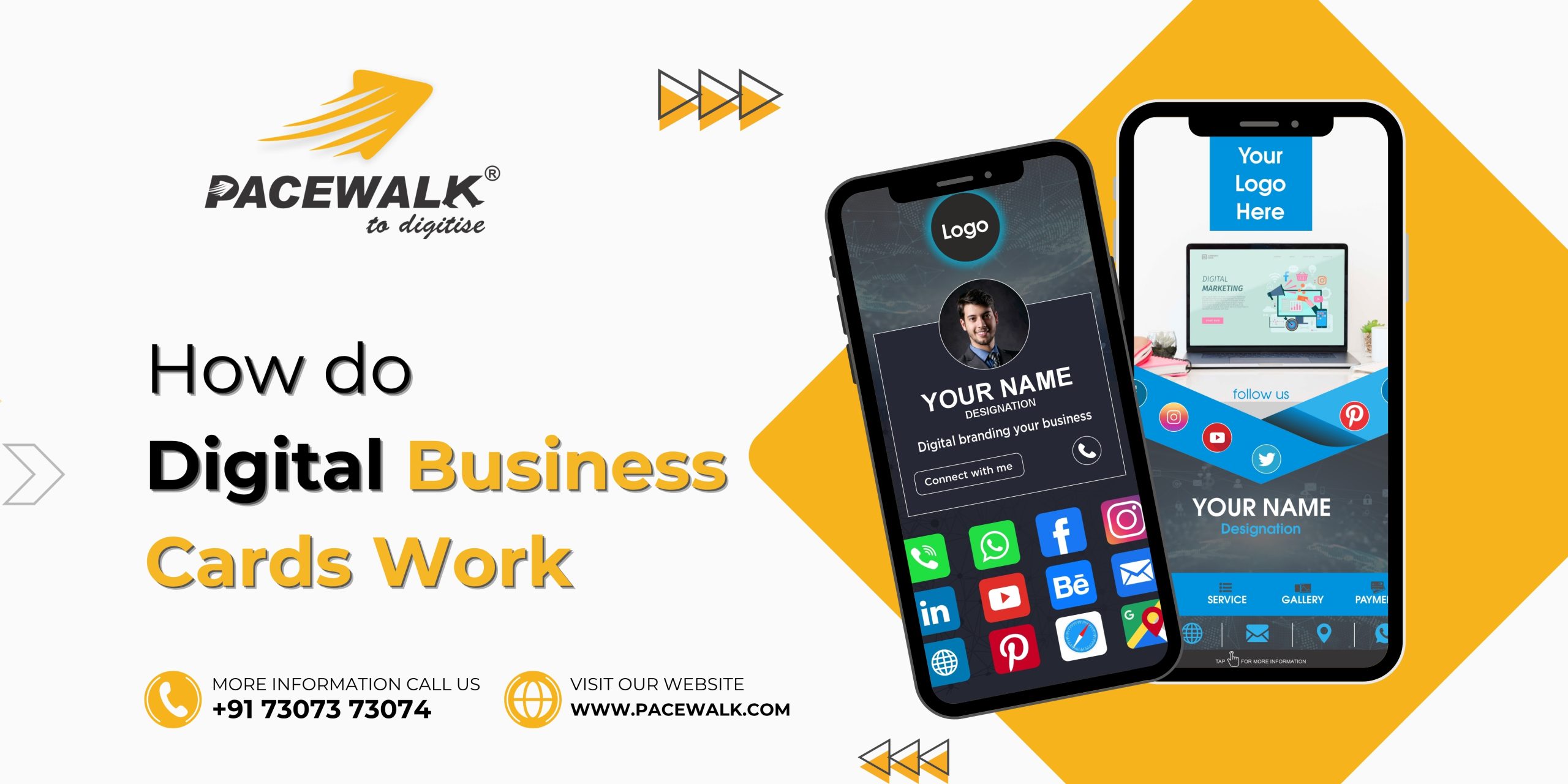Introduction
In the fast-paced world of business, staying ahead often requires embracing technological advancements. One such innovation that has gained significant traction in recent years is the digital business card. Unlike traditional paper cards, digital business cards offer a dynamic and eco-friendly solution for networking and sharing contact information. In this blog post, we will delve into the intricacies of how digital business cards work and explore the benefits they bring to professionals across industries.
Understanding the Basics
At its core, a digital business card is a virtual representation of a traditional business card. Instead of exchanging physical cards, professionals can now share their contact information digitally, making the process more efficient and environmentally friendly. Digital business cards typically include essential details such as name, title, company, phone number, email address, and links to social media profiles.
The Role of QR Codes
One of the key elements that make digital business cards seamless and user-friendly is the integration of QR codes. These unique codes, when scanned with a smartphone or a QR code reader, instantly transfer contact information to the recipient’s device. This eliminates the need for manual entry and streamlines the process of saving and organizing contacts.
NFC Business Cards
Another innovative feature that has revolutionized the way professionals share their contact information is the NFC business card. NFC, or Near Field Communication, is a technology that allows devices to communicate when they are brought close together. An NFC business card contains a small embedded chip that can be tapped against a smartphone to instantly transfer contact details, making the exchange process even more seamless.
How NFC Business Cards Work
NFC business cards work by embedding an NFC chip within the card, which can store contact information and other details. When the card is tapped against a compatible smartphone, the NFC chip transfers the information directly to the device. This eliminates the need for scanning QR codes or manual data entry, providing an even more convenient way to share contact details.
Features of NFC Business Cards
- Instant Sharing: Just tap the card against a smartphone to instantly share your contact details.
- Customizable Content: NFC business cards can include links to websites, social media profiles, and multimedia content, offering a richer experience compared to traditional cards.
- No App Required: Most modern smartphones have built-in NFC capabilities, meaning there is no need to download a separate app to use NFC business cards.
- Secure and Reliable: The data transfer process is secure, and the information stored on the NFC chip can be updated as needed.
Benefits of NFC Business Cards
- Convenience: NFC business cards offer a quick and effortless way to share contact information. Users simply need to tap the card against a phone, making the process faster and more efficient than traditional cards.
- Enhanced User Experience: The ability to customize NFC business cards with links, videos, and other multimedia elements provides a more engaging way to represent yourself or your business.
- Reduced Paper Waste: Like other digital business cards, NFC cards contribute to reducing paper waste, making them an environmentally friendly option.
- Real-Time Updates: Similar to other digital business cards, NFC business cards allow users to update their contact information in real-time, ensuring that contacts always have the latest details.
- Impressiveness: NFC business cards create a memorable first impression by showcasing the use of cutting-edge technology, setting you apart from competitors.
Interactive Features
Digital business cards go beyond the static nature of their paper counterparts. Many digital business card makers offer interactive features that allow users to include multimedia elements such as images, videos, and clickable links. This not only enhances the overall user experience but also provides a more comprehensive and engaging overview of the individual or business being represented.
Cloud-Based Storage
One of the standout advantages of digital business cards is the convenience of cloud-based storage. Instead of dealing with a physical stack of cards that can be easily misplaced or damaged, users can store and access their digital business cards securely in the cloud. This ensures that contact information remains easily retrievable and up-to-date, contributing to a more organized networking approach.
Updates in Real-Time
One common challenge with traditional business cards is the need for manual updates when contact details change. Digital business cards overcome this obstacle by allowing users to update their information in real-time. Whether it’s a new job title, phone number, or social media profile, these changes are instantly reflected in the digital card, ensuring that contacts always have the most current information.
Environmental Impact
In a world increasingly focused on sustainability, the digitalization of business cards is a step towards reducing paper waste. By adopting digital business cards, professionals contribute to a greener environment, aligning with eco-friendly practices and demonstrating a commitment to corporate social responsibility.
Conclusion
As technology continues to reshape the way we conduct business, digital business cards have emerged as a modern and efficient alternative to traditional paper cards. With features like QR codes, cloud-based storage, and real-time updates, these digital counterparts offer a streamlined and eco-friendly solution for professionals to connect and network. The convenience of a digital business card maker further empowers individuals and businesses to create personalized and engaging representations of their brand, fostering meaningful connections in the digital age.


